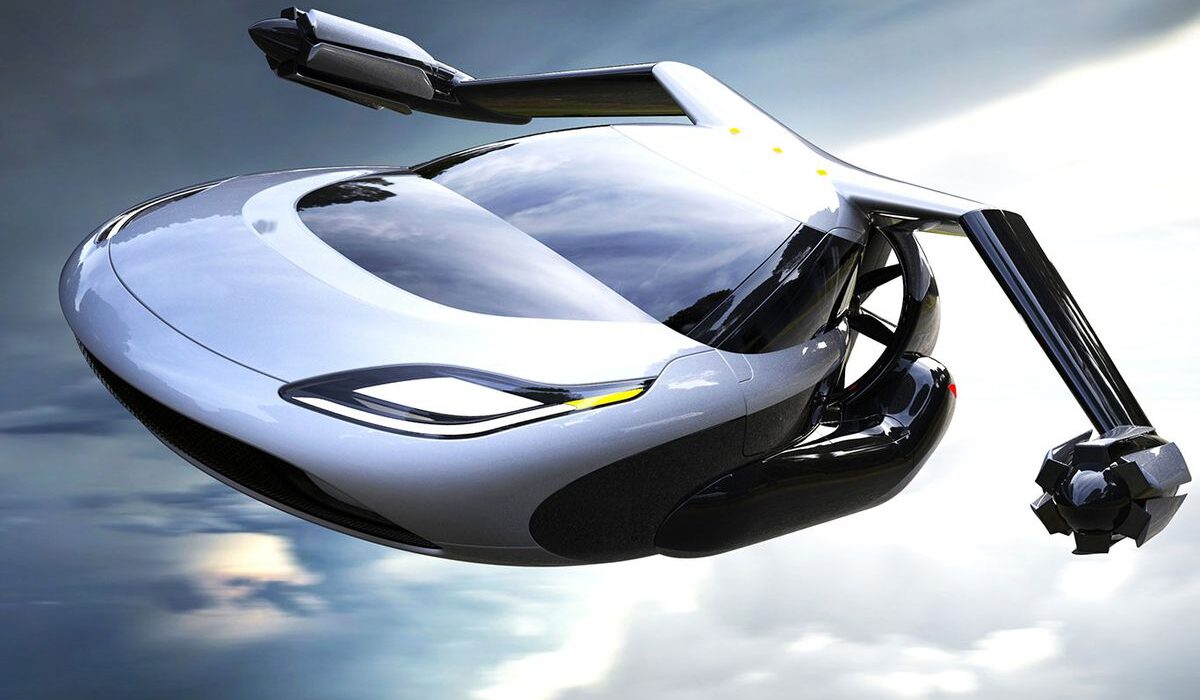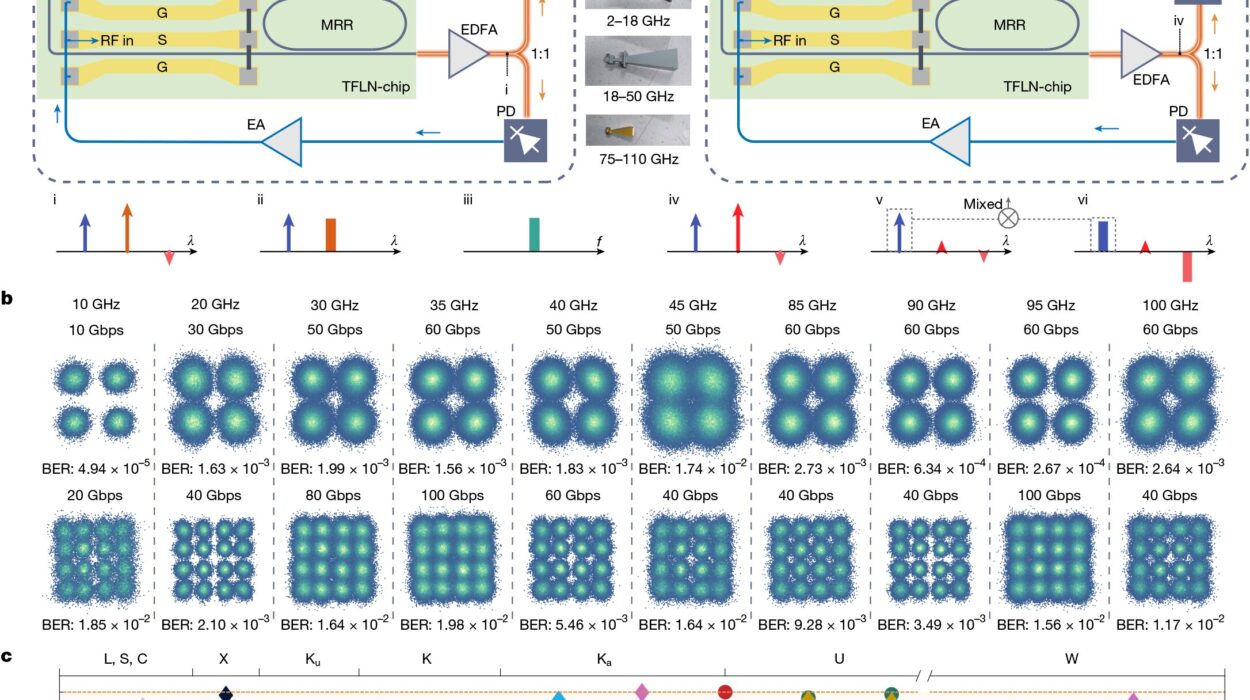The future always feels just out of reach—like a sunrise on the edge of the horizon, glowing faintly but never quite within grasp. Yet the next ten years in technology are not some distant fiction or abstract theory. They are already unfolding in laboratories, startups, and code bases across the globe. Behind every innovation is a story of risk and imagination. And while the future is never certain, the shape of the next decade is beginning to take form.
It will be a decade marked by convergence—of artificial intelligence and biotechnology, of quantum computing and climate engineering, of virtual worlds and human emotion. These technologies won’t just change gadgets or industries. They will rewrite how we live, think, govern, love, and even define what it means to be human.
Artificial Intelligence: The Mind That Never Sleeps
If the 2010s introduced the public to AI through voice assistants and recommendation algorithms, the 2020s have shown us the first glimpses of what true general-purpose AI might be. From OpenAI’s GPT series to multimodal systems capable of seeing, writing, and even generating film, we are entering the age of cognitive machines.
But the next ten years will go further. Expect AI to escape the confines of screens. We’ll interact with intelligent systems not just through keyboards or phones, but through speech, gesture, and augmented reality overlays. Personal AI companions—systems trained on our data, moods, routines, and preferences—will begin to act as co-thinkers and co-creators in our daily lives.
Professionally, AI will reshape every field. Medicine will benefit from diagnostic systems trained on billions of patient cases. Lawyers may rely on algorithms to predict trial outcomes. Writers, architects, and artists will find in AI both a muse and a challenger. But the question that looms larger than its capabilities is this: how do we stay in control of minds that learn faster than we do?
Governance, transparency, and the alignment of machine goals with human values will become one of the defining ethical struggles of the 2030s. As AI begins to write code, diagnose diseases, and even suggest legislation, the pressure to embed ethics at the core of machine cognition will intensify. If we fail, the risk is not robot overlords—it’s systems that move too fast, act too decisively, and fail to grasp human nuance.
Biotechnology and the Engineering of Life
The convergence of biology and technology is setting the stage for one of the most profound transformations in human history. CRISPR gene-editing has already demonstrated how we can rewrite DNA as if it were software. But over the next decade, we will witness the full emergence of programmable biology.
Gene therapies that once cost millions of dollars and were reserved for rare diseases will become more widespread and affordable. New delivery systems—like lipid nanoparticles, the same technology that powered mRNA COVID vaccines—will allow for precision editing of cells inside the body. Disorders like sickle cell anemia, cystic fibrosis, and even some cancers could face viable cures within ten years.
Synthetic biology will unlock even stranger futures. Scientists are already creating microbes that can produce meat without animals, plastics without oil, and materials tougher than steel using nothing but engineered yeast. Imagine entire industries rooted not in extraction, but in cultivation—biomanufacturing powered by gene circuits rather than smokestacks.
But biotech is not just a medical revolution. It’s a philosophical one. As we gain power over the building blocks of life, society must decide how far we are willing to go. Will we allow parents to genetically enhance their children? What if gene drives—tools that can spread traits across an entire population—are used not for good, but harm? The decade ahead will force us to confront not just what we can do, but what we should do with the ability to sculpt life itself.
The Quantum Horizon
Most technologies evolve slowly. But some arrive with a bang that shatters our assumptions. Quantum computing promises to be one of those. Unlike traditional bits that represent a 0 or 1, quantum bits—or qubits—can exist in multiple states at once, a principle known as superposition. When qubits are entangled, the state of one instantly influences the state of another, even across vast distances.
This isn’t science fiction. Companies like IBM, Google, IonQ, and dozens of startups are racing to build the first useful quantum computers. The big breakthrough may come in the next five to seven years. Once it does, problems that would take classical supercomputers millions of years could be solved in seconds.
Cryptography, drug design, climate modeling, financial forecasting—entire sectors will be redefined by quantum power. It won’t be a smooth transition. The rise of quantum computing will make many of today’s encryption methods obsolete, requiring a global shift to quantum-resistant security.
But more than anything, quantum computing will change how we understand complexity. We may discover materials that don’t exist yet, simulate the behavior of black holes, or unlock new realms of physics. As the boundaries of the computable expand, so will the boundaries of imagination.
Augmented Reality and the Reinvention of Space
In the past, technology altered what we saw through screens. In the future, it will alter what we see through our own eyes. Augmented reality (AR), paired with wearable tech, will become a mainstream interface by the end of the decade.
Unlike virtual reality, which pulls users into fully immersive digital worlds, AR will layer data over the physical world. You’ll walk down the street and see restaurant reviews, virtual companions, historical overlays, or interactive ads floating above your environment.
Glasses and contact lenses embedded with micro-displays will replace smartphones as our primary interface with digital information. Companies like Apple, Meta, and Snap are investing billions to make AR not just powerful, but invisible—an extension of your perception rather than a tool you have to look at.
AR will revolutionize education, navigation, gaming, and even social interaction. But it will also raise new dilemmas: When reality is filtered through lenses, who decides what we see? If two people look at the same event and receive different digital layers—based on their data, beliefs, or advertising preferences—does shared reality begin to fracture?
The battle for the augmented world will not just be about hardware. It will be about truth.
Energy in the Age of Climate Reckoning
The climate crisis is no longer looming—it’s here. The next decade will be defined not just by the acceleration of global warming, but by the technologies we deploy to adapt and respond.
Renewable energy will finally overtake fossil fuels in cost and scale. Solar panels will become cheaper, more efficient, and embedded into materials—from windows to roads. Advanced batteries will store clean energy at grid scale, ending the era of “intermittent” renewables. Wind, geothermal, and next-gen nuclear fission will play vital roles.
But energy’s future goes beyond generation. Smart grids, powered by AI, will distribute electricity where it’s needed most, adjusting in real-time to weather, demand, and consumption. Electric vehicles will dominate the roads, their batteries doubling as storage for homes and neighborhoods.
Meanwhile, geoengineering—once dismissed as science fiction—will move closer to reality. Techniques like stratospheric aerosol injection (reflecting sunlight) or carbon capture at planetary scale will be debated, tested, and perhaps deployed. These tools carry risk, but as the stakes rise, doing nothing may carry more.
The question is not just how we power our lives. It’s how we preserve the only planet where life exists.
The New Frontiers of Space
The decade ahead will not just be about Earth. It will be about the stars.
Private companies—SpaceX, Blue Origin, Rocket Lab—are turning space into the next economic zone. Rockets are becoming reusable. Space stations are becoming modular. Lunar missions are no longer dreams—they’re deadlines.
NASA plans to return humans to the Moon by the mid-2020s under the Artemis program. China and India are accelerating their own programs. Mars is no longer unreachable—it’s just difficult. Within ten years, we may see the first crewed mission to the Red Planet being prepared.
Beyond exploration, a new space economy is emerging. Satellites will number in the tens of thousands, creating constellations for internet access, Earth monitoring, and surveillance. Space tourism, once absurd, is now reality for the ultra-rich—and may trickle down in price.
But space is not just an opportunity. It’s a battleground. The weaponization of orbit, the creation of space junk, and the lack of clear governance raise urgent questions. Who owns the Moon? Who protects Earth from asteroid threats? And what rights do we carry with us into the stars?
The Evolution of the Human Body and Mind
Technology is no longer just around us—it is moving into us.
Brain-computer interfaces (BCIs) like Neuralink aim to connect neurons directly to machines, enabling thought-to-text communication, memory enhancement, and even mind-to-mind transmission. Prosthetics will become neuroadaptive—capable of feeling, not just moving. People with paralysis may walk again. The blind may see.
Wearable health tech will evolve into implantable diagnostics. Smart tattoos, biosensors, and nanobots in the bloodstream will continuously monitor health, detect disease, and even administer treatments automatically.
The boundary between natural and artificial will blur. Will athletes choose bionic limbs for performance? Will students download languages into memory? The ethics of enhancement will challenge our laws, our religions, and our sense of fairness.
Even consciousness may not remain untouched. Theories of mind uploading, digital immortality, and artificial sentience may leave the realm of fiction and enter preliminary experimentation. We may begin to ask, in earnest: what is the soul, when memory and personality can be stored and copied?
Democracy, Surveillance, and the Digital Battlefield
Every leap in technology carries political weight. The next decade will see democracy and authoritarianism clash not just in policy, but in code.
Surveillance technologies—facial recognition, gait analysis, emotion tracking—will spread worldwide. Authoritarian regimes will use them to monitor and control. Democratic nations will wrestle with how much security justifies privacy erosion.
Misinformation will grow more sophisticated. Deepfakes, AI-generated voices, and synthetic personalities will flood media. Trust itself will become a contested resource. Some nations may adopt digital identity systems verified on blockchains. Others will fragment into echo chambers of algorithmic propaganda.
But technology also offers hope. Tools for transparency, digital voting, decentralized governance, and civic engagement will expand access and accountability. Activists will use data to expose corruption. Blockchain and decentralized platforms may allow for self-governing communities independent of traditional institutions.
Whether tech empowers freedom or tyranny depends not on the machines, but the humans who wield them.
What It All Might Mean
The next ten years will not be a single story. They will be a thousand stories woven together—of families altered by gene therapy, of workers navigating AI disruption, of explorers standing on lunar soil, of children learning from holographic teachers, of philosophers grappling with synthetic minds.
It will be a time of contradictions: extraordinary power and profound risk, brilliant breakthroughs and ethical landmines, intimate connection and potential alienation.
Technology alone does not determine the future. It gives us tools. What we build with them is up to us.
We are entering not just a new era of gadgets and apps, but a new chapter of humanity. The choices we make in the next ten years will ripple across generations.






